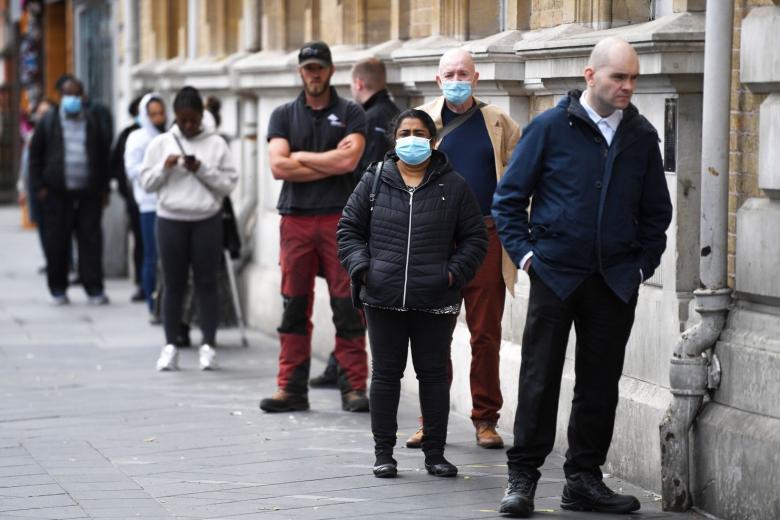LEICESTER, UNITED KINGDOM (AFP) - Britain's first local coronavirus lockdown came into force on Tuesday (June 30), just days before a lifting of restrictions - and some people in Leicester are not happy.
"It's anti-freedom. It's authoritarian," complained Will Horspool, a 35-year-old musician, after the government announced a fresh shutdown on Monday night.
The move, which comes after a spike in cases in the central city, means shops that only reopened two weeks ago have been forced to close again for a further fortnight.
Travel has been restricted, and pubs, restaurants, cinemas and hairdressers that were preparing to reopen on Saturday will now have to stay closed, while the rest of England opens back up.
Schools, too, will have to turn away pupils from Thursday, after three months of lessons at home and concern at the impact on children's education.
As the news of the latest shutdown sunk in, Horspool said he had been looking forward to this weekend. "I want a local beer in a local pub," he told AFP.
Now, he would have to go further afield, in a place spared the new measures.
People would not take kindly to the closures, he warned.
"People don't want to be controlled. There's going to be speakeasies," a reference to the illegal drinking dens that sprung up in the United States during Prohibition.
'WE'VE BEEN PENALISED'
Leicester one of Britain's oldest cities, was a major centre for textiles during the Industrial Revolution.
It has seen large-scale immigration and is now established as one of Britain's most ethnically diverse cities, particularly with people of Asian origin.
Dharmesh Lakhani runs Bobby's restaurant on the city's so-called "Golden Mile" - Belgrave Road - renowned for its Indian food, and shops selling saris and jewellery.
He had been preparing to reopen, with new measures to keep customers apart, including his 20 staff wearing protective equipment such as facemasks.
The government's response had been a "great mismanagement from the start", he said.
"Five miles (8km) north, restaurants are open. How are you going to stop people going there? As a city, we've been penalised," he said.
Prime Minister Boris Johnson is hoping Saturday's wider reopening in England will kick-start the economy, battered by the coronavirus-enforced lockdown.
After more than 43,000 deaths - the third-highest toll in the world - he said moves to return to a semblance of normality were possible as cases and deaths are declining.
But Leicester, home to some 330,000 people in the city itself, and more than 600,000 in the wider area, had 10 percent of all positive cases in the country last week.
The seven-day infection rate in the city was 135 cases per 100,000 people - three times that of the next highest city, Health Secretary Matt Hancock told parliament on Monday.
According to Leicester City Council, there were 944 confirmed cases of the virus in the city in the last two weeks.
"I'm a nurse and I can see the rise in cases," said Manuela, 30, who only gave her first name.
"People aren't taking it seriously," she said.
"They are not wearing masks in shops. Even when the country was in lockdown, people kept doing what they wanted.
"It affects everyone. People without a (health) condition are dying."
'VERY CONCERNED'
Hancock has urged the public in Leicester to stay at home as much as possible but many people were out on the streets regardless, some with their faces covered, others not.
Long queues were seen outside banks and signs urging people to wash their hands thoroughly, and keep their distance from one another.
The city's elected mayor Peter Soulsby said he was "very concerned" about the impact of the new restrictions on the city's economy, and also its people.
The lockdown had been more wide-ranging than anticipated, he told reporters, but "it is nonetheless something that has some realistic prospect of being effective".
Soulsby called for further government support for the city, as well as more precise information about where the virus had hit hardest.
Hospitals and some food-processing factories have already been closed after clusters of cases.
"We do need still to know more about where it is in the community. Which neighbourhoods, which communities, which streets," he told reporters.














